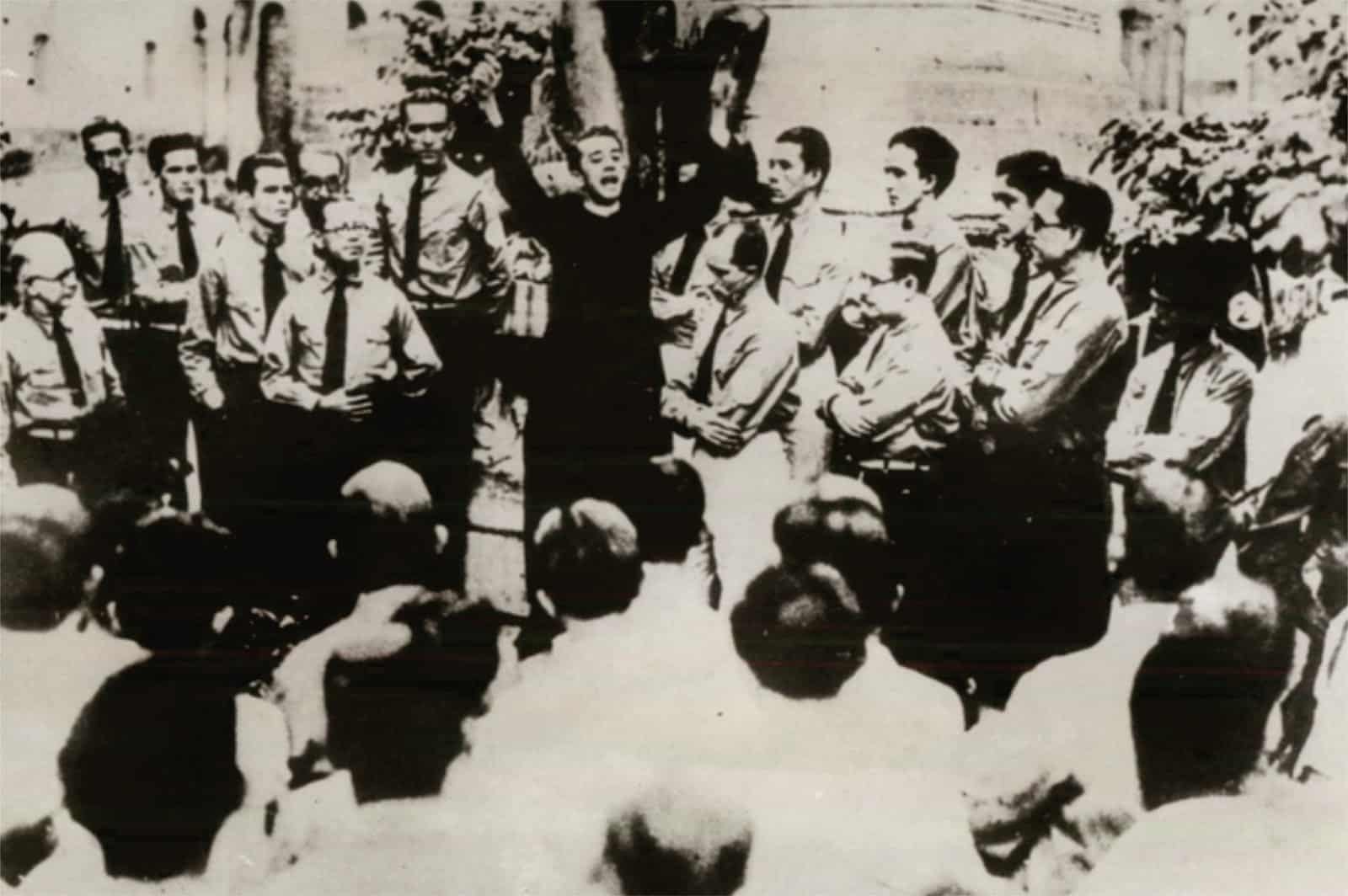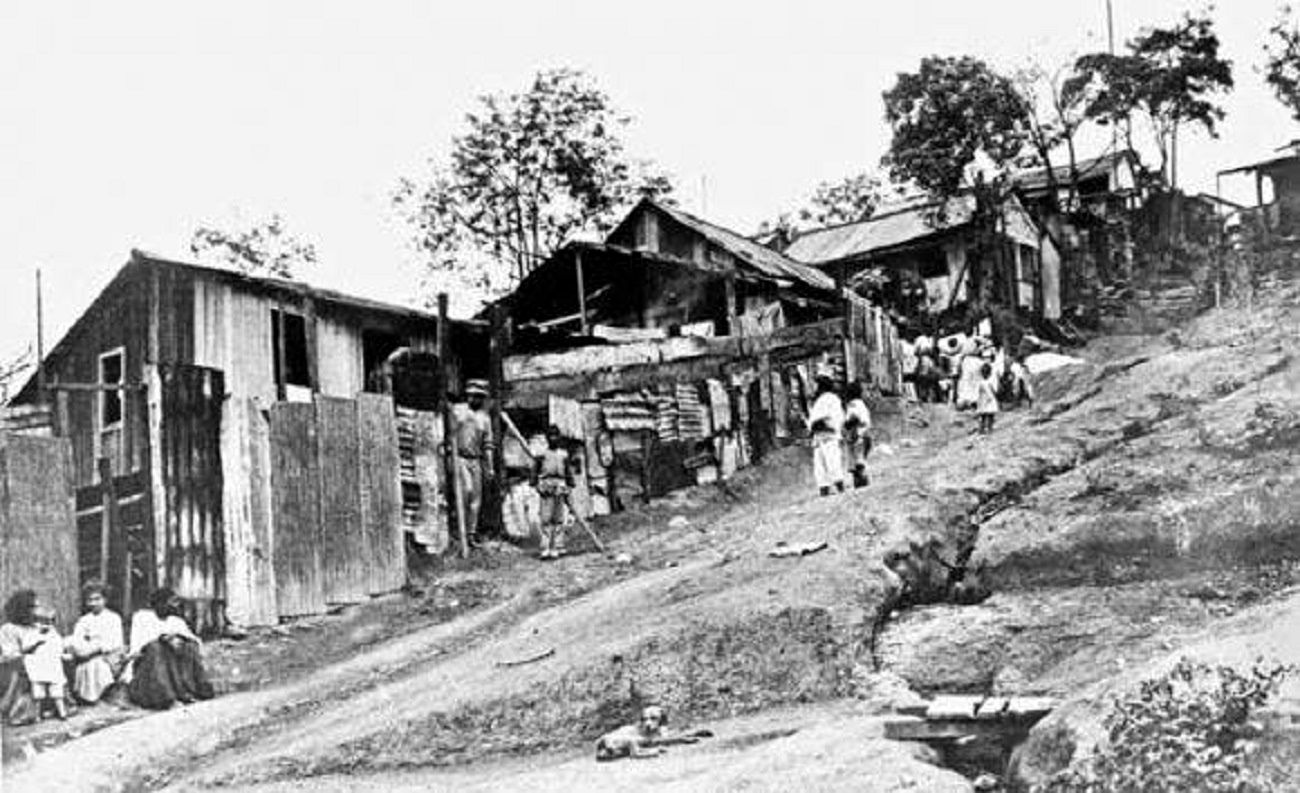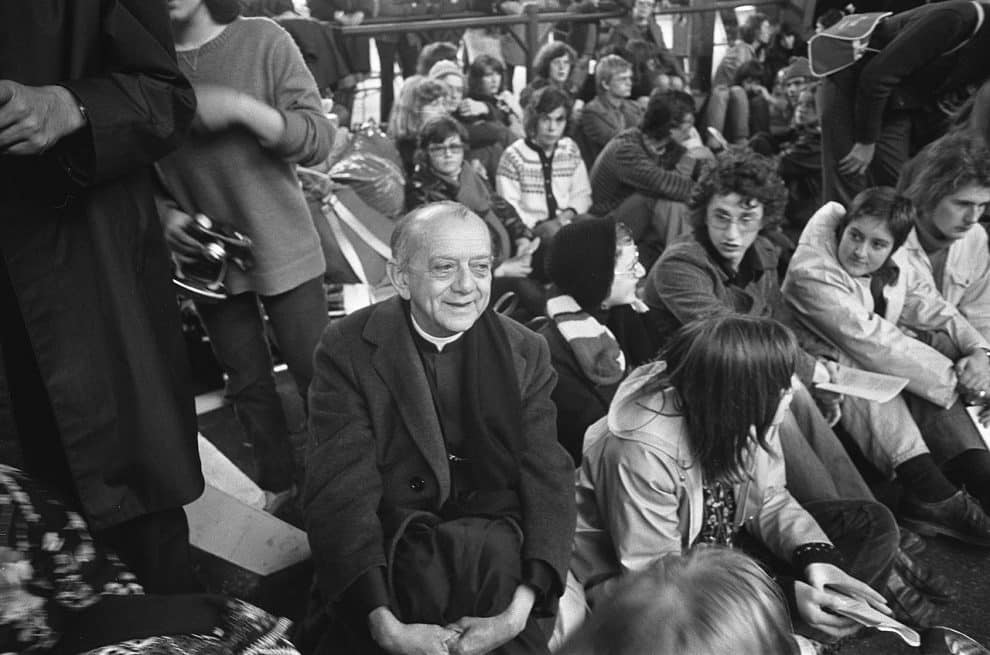Transformation into a Man of the People
What this campaign DID succeed in doing was bringing Father Câmara face-to-face with the poorest of Brazil’s poor for the very first time. And he was forever changed by it. Out of this experience he ended up leaving the Integralist Party and began to talk in his sermons about “unjust structures of poverty” and how the Church needed to work not just for the people but with the people.
This is the perspective he took with him when he was appointed archbishop of Olinda and Recife, a particularly impoverished area of the country.
Eschewing all the usual trappings of that office – a literal palace to live in, bright colored robes to wear, all manner gold jewelry with which to bling himself out in – he chose instead to live a life of radical solidarity with the poor. He took up up residence in a small house behind a church, wore only a brown cassock and a wooden cross around his neck, and ate his meals at a bar on the corner surrounded by constructions workers and alcoholics.
As it so happens, the same year that Câmara was appointed archbishop, a fascist military dictatorship took over the Brazilian government. Câmara observed that under their rule the poor were suffering even more than before.
In response, he instituted all sorts of social programs to help meet the basic material and spiritual needs of the masses living in poverty in his archdiocese. He initiated feeding programs and various housing projects. He established a permanent campaign of charity for the needy. He even advocated for industry to move into that area of the country to create jobs with which people could support their families.
At the same time as he worked to alleviate the suffering of the poor, Câmara also became an outspoken critic of the regime. In weekly radio broadcasts, he would speak in favor of governmental reform.








